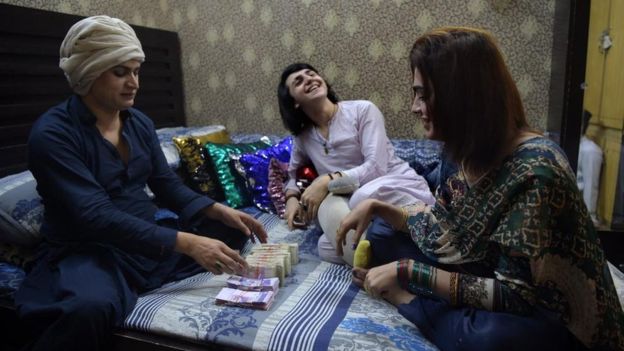
The 1978 Communist coup and the subsequent Russian invasion of Afghanistan in 1979 forced nearly one-third of the Afghan population to leave the country and take refuge in other countries, mainly in Pakistan and Iran. Since then, the Afghan refugees have been used as a tool to appease governments in Afghanistan. Refugees were armed to fight against the Russians, used in Iraq and Kashmir and are now equipped to fight against the Americans. Until the Afghan refugees return home there will be little stability in Afghanistan. Since the UN member states are responsible for the flight and plight of the Afghan refugees, their return home is also the prime responsibility of the UN if a durable and permanent peace in the region is desired.
It is estimated that around 2.5 million Afghan refugees are still in Pakistan and over a million in Iran. Iran often played the Afghan refugee card to pressurize the Afghan Government for concessions. In several winters, Iran threatened to expel thousands of Afghan refugees. The Afghan Government begged them not to do so and offered concessions. Humiliation, robbing, imprisonment, execution by hanging and expulsion of Afghan refugees are means the Iranian authorities have often used. Top Iranian officials did not hesitate to mobilize anti-Afghan feeling and sentiments among Iranians; for example, President Ahmadinejad claimed, “Afghans were given place in our house as guests, but they now claim to be the owners.”
The chairman of Afghanistan's Senate, Fazal Hadi Muslimyar, told RFE/RL on 19 May 2012 that senators received threats regarding the Afghan-US Strategic Agreement. A number of parliament members have recently said they have received messages on their mobile phones saying they would be "targeted" if they approved the strategic partnership agreement. They said the messages had been sent by Mir Hamza, a spokesman for "Dadullah Fidayee Front”, a suspected Iranian network. Muslimyar also said “Abul Fazl Zuhrawand, (Iran’s Ambassador to Kabul,) had met me and asked me not to approve the Afghan-US Strategic Agreement as it is a threat against regional countries. Zuhrawand told me that if we signed the agreement with the Americans then they would kick out the refugees.” The fate of Afghan refugees in Iran is often used by Tehran as a bargaining chip during disputes with the Afghan government. Muslimyar continued, “as you know, Iranian ammunition and weapons have been seized many times in Afghanistan and Iranian spies have been detained."
Iran's Foreign Ministry spokesman Ramin Mehmanparast reiterated on 06 May 2012 his country's concerns over the security pact recently signed between the United States and Afghanistan. "We believe the presence of foreign forces, including the U.S. forces and its allies is the root cause of insecurity and instability in the regional countries and especially in Afghanistan. The unclear roles defined for U.S. forces and their military bases, in the strategic partnership agreement between the United States and Afghanistan, are major sources of concerns for Iran and other regional countries. The pact cannot resolve Afghanistan's security problems; instead, it will further destabilize the country and increase insecurity," said Mehmanparast (Xinhua-Tehran, 8 May 2012). In his weekly press briefing, Mehmanparast said “The Islamic republic has informed Afghan officials about its concerns over the agreement”. Iran’s fears were highlighted late last year when an advanced American spy drone, launched from a base in Afghanistan, crashed more than 100 miles inside Iranian territory. Tehran fears that an extended U.S. military presence in Afghanistan would provide Washington with a strategic advantage, allowing them to conduct surveillance and perhaps even launch future military attacks on Iran.
However, the Afghan authorities hope that the agreement will prevent meddling and intimidation from Iran and Pakistan by showing that America will not abandon the Afghan government after 2014 and will help Kabul resist interference, by military means if necessary. The strategic partnership agreement signed by the Afghan and U.S. presidents on 2nd May 2012 covers relations between the two countries when NATO forces pull out in 2014. According to President Karzai, Afghanistan also wants to further enhance its relationship with both Pakistan and Iran. He added that the U. S.-led coalition forces should pursue terrorists hiding in sanctuaries outside the Afghan borders (Pakistan and Iran), instead of fighting them in Afghan villages. A statement from the Ministry of Foreign Affairs said that the Iranian first counsellor in Kabul had been summoned and told that Afghanistan could sign agreements with whoever it chose. Rangin Dadfar Spanta, Afghanistan's National Security Advisor and key protagonist in negotiations behind the long-term agreement with United States said on 08 May 2012 that the pact was signed to put off any country from military or political interference in Afghanistan. Spanta warned, in his address at Herat University, that any country which attempted a military attack on Afghanistan would face a US military reaction. "Iranian officials told Afghan senators not to approve the pact or Afghanistan will face problems. We reply to them that it is for this very reason we signed the agreement," Spanta said. "What I see in Iran is nationalism and radicalism which tries to influence the region from a religious point of view. [Iran's] politics have never been recognised globally," he added. Ryan Crocker, American ambassador to Kabul, has refused to rule out using Afghanistan as a base for continued drone strikes against terrorist targets in neighbouring countries after 2014, saying the US had a right to defend itself (Telegraph.co.uk.10 May 2012).
As the diplomatic row played out, Afghan intelligence leaked a video purporting to show two Afghan men confessing to spying for Iran and attempting to carry out terrorist attacks in Afghanistan. They admitted to belonging to Sipah-e Mohammad, a group of Afghan refugees who allegedly received training by Iran's Islamic Revolutionary Guards Corps. The Revolutionary Guards, the men claimed, were recruiting and providing training for Afghan militants from the Taliban movement and the Hizb-e Islami group in training camps inside Iran. Adding to the growing discord, Afghan intelligence announced that allegations that up to 40 Afghan members of parliament were on Tehran's payroll were being investigated. Iranian-funded media outlets also came under scrutiny for alleged incitement of anti-American and anti-government sentiment.
It must be noted that Iran helped the Americans to occupy Afghanistan. Iranian leaders, including Supreme Leader, Ayatullah Khamanaie, Hashmi Rafsanjani and Ayatullah Jannati, have said time and again that, without Iran’s help, the Americans would not have succeeded so easily in toppling the Taliban regime. For more than a decade, Iran has increased its influence in Afghanistan without interference from the US. According to RFE/RL (15 May 2012), Iran's influence in Afghanistan is set in concrete: “new roads crisscross the country, power grids supply remote cities with electricity, and planned railways form ties that bind. Tehran's also leaves its mark in less obvious ways, for example through its export of cultural and political views, strong media presence, funding of religious schools, bribing government officials including presidential palace. The Afghans worry that the Kabul Government made Tehran in the position to make Afghanistan an ideological battleground should Kabul not see things its way.”
Although the Afghan refugees in Pakistan lived more comfortably than their compatriots in Iran and this has put a positive impact on Afghans, however, last April the provincial
government of Khyber-Pakhtunkhwa ordered that all unregistered Afghan refugees must pack up and back to Afghanistan by 25 May, blaming them for the worsening security situation in the province. Authorities have vowed to launch a police crackdown after the deadline, to roundup the illegal immigrants and hand them over to Afghan authorities on the border.
Pakistan and Iran have the right to control who enters their country, and whether they are allowed to stay. However, forced repatriation creates an opportunity for police to harass Afghan refugees irrespective of their legal status. For more than three decades the Afghan refugees have shown themselves to be calm and well behaved people. They never posed a threat to order and security in the host countries, in spite of many socio-economic problems.
There are over half a million displaced people; mainly Pashtuns from the north of the country. Currently, they live as displaced people in different provinces. They are the backbone of the Taliban.
It is time for the International Community to help the Afghan refugees and internally displaced people to return home, if a truly peaceful and stable Afghanistan is what they desire. This can only be done when there is a government in Kabul, working as a team and having a vision for the future.




